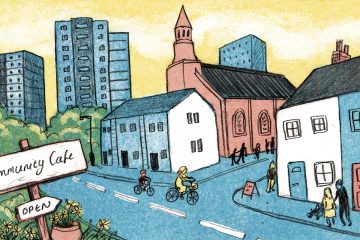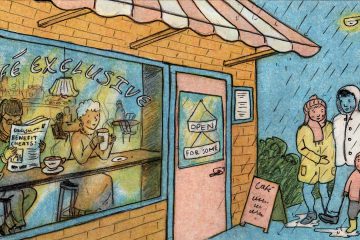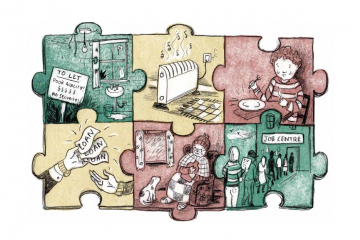In the second of a series of guest blog posts during Covid-19, this week we hear from foodbank volunteer Bob Jefford. Bob reflects:
The pandemic has just transformed all of our lives, and the Covid-19 stats are spreading like wildfire. But dig beneath the increasing death toll and the controversies over PPE and testing, and you’ll find that the numbers about UK food poverty are already rising at a truly alarming rate.
The Trussell Trust, the UK’s biggest foodbank network, has just reported an immediate 81% increase in demand. We’re talking an extrapolated 3 million food parcels a year. And that’s not counting the third of all foodbanks who’re part of the Independent Food Aid Network and having the same experience.
But this is just the start. Things will get worse, much worse – that’s a guarantee.
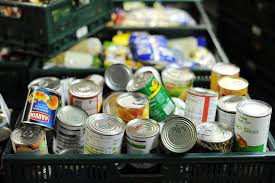
So here’s my fear. In the understandable and heartening rush to provide food for those who suddenly can’t afford to feed themselves, there’s a big risk. The way charities and supermarkets are being left to provide for the needy during the pandemic, could end up cementing foodbanks into the fabric of British society in a way that can never be reversed.
That could be the unintended consequence of so much good will coupled with a government that seems entirely happy to allow others to deal with a problem it created long before Covid-19 made the situation unimaginably worse.
Let’s be honest, the pandemic has dealt the government with something akin to a misère ouverte hand. But the way it’s played those cards has confirmed its one main enduring focus: “it’s the economy stupid”.
What about the weakest and most vulnerable in our society? My experience from five years at a foodbank providing parcels for more than 10,000 people per annum, leads me to a stark and unacceptable answer.
At the moment, in one of the richest countries in the world, those who need support the most get little more than an after-thought.
Austerity and universal credit, sanctions and personal independence payment refusals, benefits frozen for five years while pensioners enjoyed their guaranteed triple lock increases – a cynic might point out that poor people generally either don’t vote or vote Labour, and pensioners in very large part vote Conservative…
This governing party believes everybody should just get a job, that’s the raison d’etre of universal credit. If the government genuinely wanted to support the weakest and most vulnerable, it would have created systems easy to access and easy to navigate. Remember, people with learning difficulties or mental health issues need access to benefits too.
The fact that many claimants find these provisions to be impenetrable mysteries, completes the case for the prosecution.
Even before Covid-19, a few million food parcels were being distributed in a year. Even before our lives were turned upside down, there was a serious risk that foodbanks were becoming part of the establishment – just like in the US, where foodbanks are now part of their capitalist economy.
In the UK, huge multi-million-pound deals had already been struck between supermarkets and charities that provide food for the needy.
And now, it’s difficult to keep up with the number of organisations – old and new – that have recently taken on the vital task of sourcing and distributing emergency food in these troubled times, often funded by supermarket millions not the government.
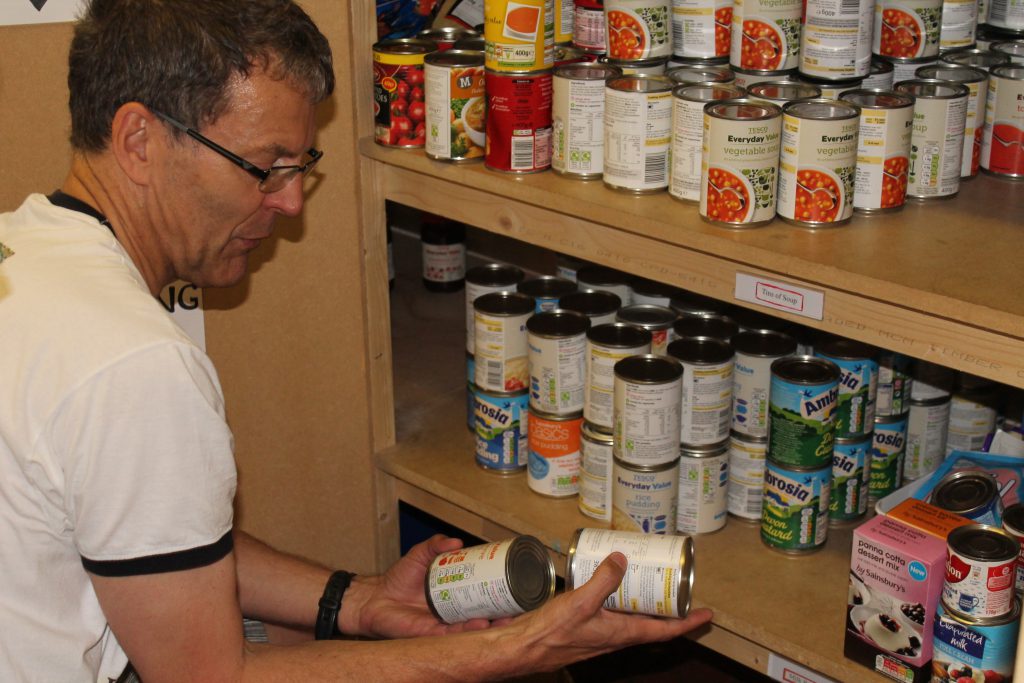
In purely theoretical terms – and I have to take a gulp before saying this – the heroes who’re providing these essential supplies are allowing the government to ignore the underlying problem of food poverty.
What if the third sector simply refused to fill gap? People would starve, that would not play at all well in the media, and the government would feel forced to finally do something about it.
In normal times, the real solution to food poverty is not foodbanks. That’s treating the symptoms, not the disease. The cure is decent, regular wages or decent, regular benefits – enough for a reasonable standard of living, not luxuries.
But the unintended consequence of these huge new pandemic food networks that will soon be feeding tens of thousands maybe more, is that foodbanks and their like will become a locked-in feature of UK poverty. And how long will it take to get back to a society where foodbanks are no longer needed? Decades? Maybe never.
It’s an unprecedented dilemma for unprecedented times. But with a government sitting on its hands, what would you do when individuals and families are literally begging for something to put on the table? Could you turn your back, walk away and tell the government that now’s the time to step up to the plate?
